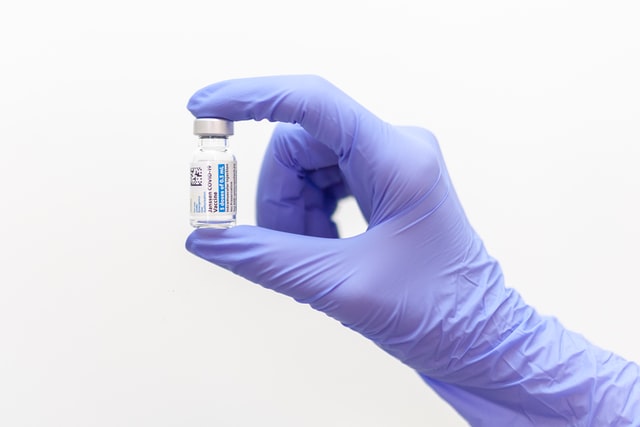
Covid-19 Vaccine Antibodies Pass Into Breastmilk
COVID-19 vaccine antibodies pass into lactating mothers’ breastmilk. The results of the study that LactApp has carried out together with the Spanish Institue of Agrochemistry and Food Technology (IATA), a center of the Spanish National Research Council (CSIC), are now available and have determined that breastmilk of women vaccinated against coronavirus contains antibodies against Covid-19.
The study did not find any traces of the virus in any of the milk samples tested, which do have specific antibodies to SARS-CoV-2. All three vaccines have been shown to generate antibodies that pass into breast milk. This is the first study of its kind in Spain and the first worldwide to compare the effects of three different vaccines in breast milk.
The first study to compare the effects of three different vaccines
The study analyzed the presence of antibodies against SARS-Cov-2 in 75 lactating women who have been vaccinated with different types of vaccines: 30 with two doses of Pfizer, 21 with a full course of the Moderna vaccine and 24 with AstraZeneca’s first dose only. The study shows the presence of specific antibodies (IgA and IgG) in the samples, and antibody levels were different according to the vaccine received, the time of measurement, the completion of two courses, as well as the existence of a previous COVID-19 infection.
In all cases, there was a response to vaccination in form of an increase in antibodies to SARS-CoV-2, which was much higher after the second dose. Some of the women who were vaccinated had previously contracted Covid-19 and, after the first dose of vaccine, their breastmilk had the same levels of antibodies as women who had not contracted the virus, but had received both doses. This is consistent with data suggesting that individuals who have previously contracted the disease achieve measured immunity in blood with one single dose of vaccine.
On the other hand, it has been observed that levels of antibodies in breastmilk reach a maximum at between 7 and 14 days after completing the full vaccination course and these levels are maintained thereafter, which is consistent with the data reported by official sources.
Passive immunity
The immunity the baby receives through breastmilk is passive. This means that it does not provide the same protection level against Covid-19 as that of a vaccinated person and it is not predicted that the baby generates an overall immune response of its own.
However, the immunoglobulins present in breastmilk help to prevent the baby from contracting an infection in case of the Covid-19 virus being detected in its respiratory and intestinal tract, but more research is needed to know exactly how much immune capacity is transferred through breastmilk.
The coordinator of the LactApp research team, Laia Aguilar, said that “further research is needed in the field of breastfeeding to obtain scientific evidence that allows women to make informed decisions about their health”.
“Breastfeeding is a priority and we still need more studies to confirm the potential protective role for children of these antibodies against Covid-19 that are present in breastmilk,” said María Carmen Collado, a researcher at IATA-CSIC.
An ongoing initiative
The study is part of the MilkCorona Initiative, which involves hospitals in the cities of Barcelona, Granada, Valencia and Zaragoza, as well as several universities (Barcelona, Jaume I of Castellón and Granada), together with LactApp.
This multidisciplinary group continues to work together to study the impact of new coronavirus variants on the antibodies present in breastmilk, their persistence after COVID and after vaccination, and the effect of AstraZeneca’s full course of vaccination. In addition, the group is investigating the effects of a SARS-CoV-2 infection on the composition of breastmilk, as well as its effect on the microbiome, the immune system and infant development. The initiative has also just received funding from a telethon fundraising campaign by the regional public Catalan TV channel TV3 (La Marató de TV3).
Scientific research reference:
Marta Selma-Royo, Christine Bäuerl, Desirée Mena-Tudela, Laia Aguilar-Camprubí, Francisco J Pérez-Cano, Anna Parra-Llorca, Carles Lerin, Cecilia Martínez-Costa, Maria Carmen Collado. Anti-Sars-Cov-2 IgA And IgG In Human Milk After Vaccination are Dependent On Vaccine Type And Previous Sars-Cov-2 Exposure: A Longitudinal Study. medRxiv 2021.05.20.21257512; DOI: https://doi.org/10.1101/2021.05.20.21257512
This is a preprint publication and therefore the final version may be modified depending on possible suggestions from peer reviewers. The publication is currently under review.
Other research
At LactApp we focus on breastfeeding research, a field in which there is still an enormous lack of scientific evidence. We have just started a clinical study on mastitis, which aims to improve the early diagnosis of this condition, one of the main causes for mothers to stop breastfeeding before they intended to do so.
More information on our research activities and the full printed versions of our previous research publications can be found here.